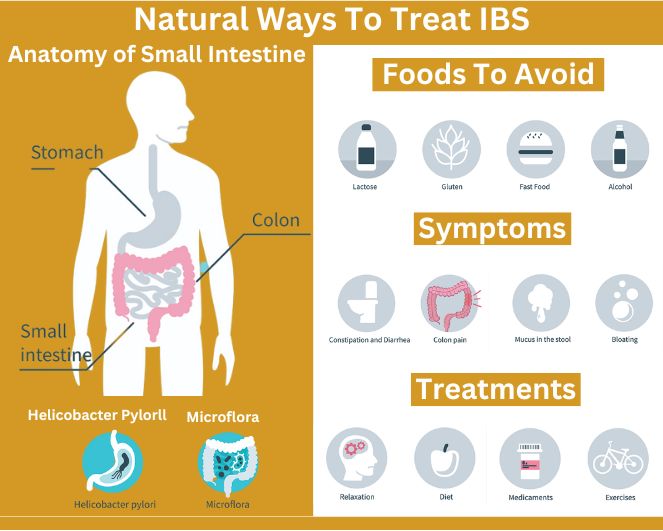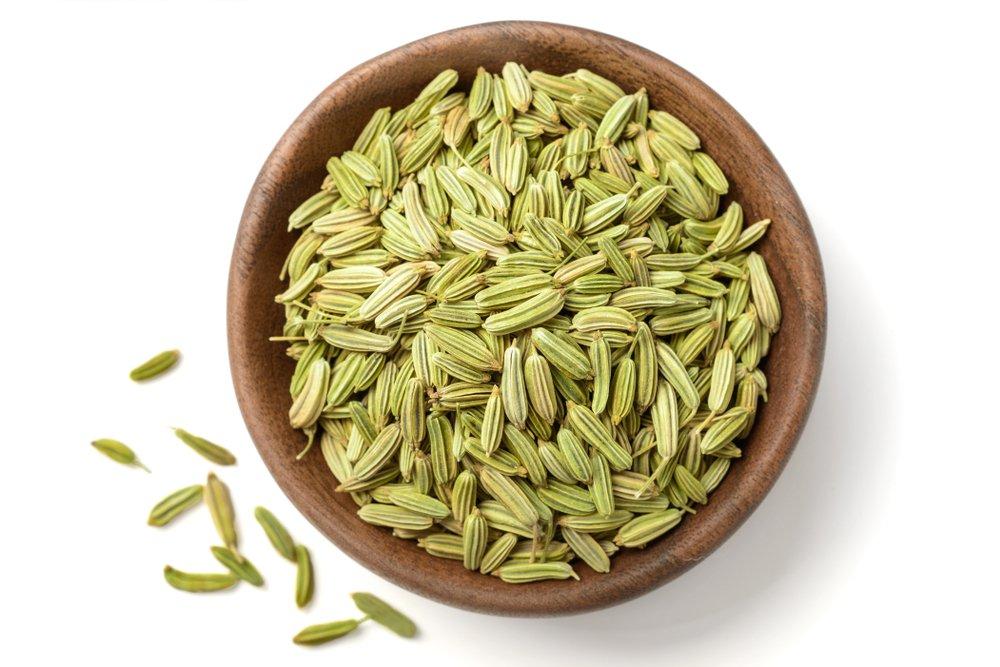Irritable bowel syndrome is called ‘Grahani’ in Ayurveda. It is a digestive disorder that affects the stomach, and intestine also called the gastrointestinal tract. This condition may be lifelong but the symptoms vary over time. IBS is a mix of belly discomfort, pain, and disturbance in bowel habits. It can be either passing stool often or constipation. This disease today has affected around 9%-23% of the population worldwide according to government studies. Still, negligence towards this disease is high as people try to initially prefer following some tips and Western medications which ultimately prove to provide temporary results. Ayurvedic treatment for irritable bowel syndrome is the most trustable option that provides lifelong recovery. Let’s discuss in this blog, what is Irritable Bowel Syndrome. What is the main cause? What all symptoms are associated with the disease? And most importantly, How is Ayurvedic treatment for IBS the best approach?
Irritable Bowel Syndrome (IBS) is a disease that mainly affects the intestines, causing disrupted digestion. The severity of the condition increases if not treated timely.
What are the main causes of IBS?
Gut infection- Repeated infections in the stomach can cause IBS.
Stress and anxiety- Stress and anxiety directly affect the immune system thus a difference can be seen in the symptoms.
Poor eating habits- Eating unhealthy food, and eating at odd times affects gut health.
Sedentary lifestyle- Being inactive and not exercising can raise the risk of the disorder.
Some major signs of IBS are
- Abdominal pain- Recurrence of acute or chronic pain and cramps in the stomach.
- Excessive thirst- A person usually drinks more water due to loss of body fluids while passing the stool again and again.
- Irregular bowel movement- Irregular bowel movement is the foremost symptom of IBS. Bowel movements can be harder or loose than usual.
- Mucus in the stool- Mucus while you poop may sometimes look whitish.
- Abdomen bloating- A low FODMAP diet helps reduce and manage bloating.

Ayurvedic Herbs for IBS Treatment
Ayurvedic herbs for IBS are the best for resolving chronic diseases, as they balance the Vata Dosha. These medicines are composed of specific herbs. (the root cause of digestive diseases)
-
Licorice Root: It is believed that this herb helps fight inflammation, cleanse the colon, and kills viruses and bacteria present in the stomach.
-
Peppermint: Peppermint is a magical herb to treat IBS. It helps relax the muscles of the gut to improve motility. This herb is more effective than any other medicine.
-
Ginger: Ginger is commonly found in every home and is very helpful in treating IBS. It effectively treats gastrointestinal symptoms and improves digestive health.
DIET FOR IBS- FOODS TO EAT AND AVOID
A healthy diet for IBS includes low FODMAP foods, fiber-rich foods, probiotics, and staying hydrated to manage symptoms and improve gut health.When it is about resolving digestive diseases, an Ayurvedic practitioner will always advise maintaining a healthy and nutritious diet. Ayurveda holds a position as it is the only treatment method that strongly believes in and emphasizes adopting a proper diet rather than just relying upon medicines for recovery. The apt description that is put forward i.e., an unhealthy diet triggers gastrointestinal diseases and additionally the continuous maintenance of a sedentary lifestyle. Thereby, the IBS Ayurvedic treatment is subject to aim at treating the underlying cause by majorly emphasizing incorporating healthy diet and lifestyle choices followed by the medications.
The best and most effective diet tips suggested by Dr. Sharda Ayurveda experts are elaborated down below.
-
Include more fiber-rich foods in your daily diet, including cereals, beans, fruits, and vegetables.
-
Remember to subtract or minimize the intake of foods like broccoli, cabbage, and onions because these can majorly cause the issue of acidity and flatulence problems. If not controlled, the symptoms can worsen over time.
-
The highly saturated carbohydrates are difficult for the intestine to digest as it majorly leads to concerns including increased gas, abdomen bloating, diarrhea, and irregular bowel movement. Cut down on them for the best results.
-
Eat an adequate or standardized amount of protein in the diet. For this, a person can have pulses, which must be well-cooked.
-
Limit foods that are high in sugar, salt, and fat.
-
Do not skip meals.
-
Reduce the intake of caffeinated products as they potentially trigger the occurrence of digestive diseases.
-
Fruits that are high in water content are especially advised such as watermelon, kiwi, apple, and pear.
-
Dairy products should be excluded from the diet, like cheese, butter, and high-fat milk, but do assure to have cow’s ghee.
-
Raw vegetables and fruit salads can also help ease bowel movements.
IBS FOODS to Avoid
Try avoiding foods that trigger the symptoms of IBS. Following is a list of foods to avoid-
-
Gluten diet
-
Refined and processed food
-
Carbonated drinks
-
Caffeine
-
High protein diet
-
High intake of sugar, salt, and spices
-
Dairy products
IBS FRIENDLY FOODS
Add these foods to your diet
-
Green leafy vegetables
-
Soaked Nuts
-
Seeds
-
Fruits lower in sugar
Ayurveda believes a perfect balance between all three Doshas (Vata, Pitta, and Kapha) can help keep you away from ailments. The IBS occurs due to an imbalance of the Vata (air/ether) element. This specific Dosha resides in the colon, and thereby an imbalance can create changeable bowel movements and variable symptoms.
Are you facing similar issues? Even after consulting specialists still, are the results unsatisfactory? Then worry not and approach IBS Ayurvedic treatment, which is considered the best solution that has successfully been able to treat a countless number of patients naturally.
Discuss below the Ayurvedic treatment, tips, and remedies suggested for Irritable Bowel Syndrome:
LIFESTYLE MODIFICATIONS FOR IBS RELIEF
By adopting a healthy lifestyle regime, one can keep themselves away from developing digestive and other associated chronic diseases. Not only diet, but lifestyle also significantly influence your quality of life to a great extent.
The lifestyle modifications that must be adopted and incorporated for healthy and sustainable living are:
-
Do remember to keep yourself hydrated.
-
Keep yourself physically active by engaging yourself in regular exercise.
-
It is always suggested to keep a check on your daily diet. If the symptoms are persistent and prolonged then do go for a “food intolerance test” which is the simplest way to cope with Irritable Bowel Syndrome or any other digestive ailments.
Ayurveda employs a three-dimensional approach to treat IBS. The basic technique, mostly aims at treating the underlying cause of the disease, thus assuring a positive and long-term recovery. It includes steps that are designated for proper detoxification and purification of the body system. For Irritable Bowel Syndrome (IBS) cleansing of the colon is the main objective through flushing out toxins thereby re-establishing colon health. This will help minimize the chances of getting any digestive disorders in the future anymore. Management of stress, exercising, and the importance of sleep play a major role in recovering from a disease.
STRESS MANAGEMENT
Stress flares up the symptoms of the disease thus making it worse. Studies show us that stress can be a cause and risk factor for IBS. According to a study done by government authorities in 2014, 40%-60% of people with IBS also suffer from stress. Managing stress is considered the root cause of all the diseases that exist today. Various studies have been successful in proving that “gut health is significantly linked with the nervous system.” Thereby, a perfect balance between the two can shatter the chances of digestive disorders.
ROLE OF EXERCISE
Exercise and physical activities help ease IBS symptoms. Exercise helps in regulating bowel movement and reduces bloating. It also enhances mood and energy and helps reduce muscle tension.
IMPORTANCE OF SLEEP
Improper and lack of sleep worsens the symptoms of IBS. There is a link between IBS and sleep as lack of sleep can hamper the bowel's ability to rest and recuperate, further leading to bowel muscle fatigue that can cause reduced bowel movement and function.
HOME REMEDIES FOR IBS
If you suffer from irritable bowel syndrome (IBS), you know firsthand how challenging it can be to manage symptoms like abdominal pain, bloating, and irregular bowel movements. Fortunately, there are a variety of home remedies that can provide relief and improve digestive health. Let's take a closer look at some of these easy and natural remedies.
Aloe Vera Juice

It is one of the most potent and valued herbs for curing many health issues, including digestive disorders. Its antibacterial and anti-inflammatory properties help treat constipation and diarrhea. You can have a shot of Aloe vera juice once a day.
Fennel seeds (Foeniculum vulgare)

The carminative and anti-inflammatory properties make this herb especially helpful in treating digestive disorders. It provides relief from abdomen pain and bloating, indigestion and flatulence.
Turmeric (Curcuma longa)

The most effective herb is recommended for curing almost all possible inflammatory-associated diseases. It has antibacterial/viral/fungal properties that essentially keep diseases at bay.
YOGA AND MEDITATION FOR IRRITABLE BOWEL SYNDROME
Yoga for IBS, meditation, and breathing exercises play a pivotal and crucial role in providing effective relief from recurrent symptoms of Irritable Bowel Syndrome (IBS). Meditation helps relax the body and mind and also works on the gut-mind connection and the results are seen as quite effective.
The best yoga poses suggested for the purpose are listed below.
- Parighasana (gate pose)
- Ardha Matsyendrasana (half-seated spinal twist)
- Salamba Setu Bandhasana (supported bridge pose)
- Ananda Balasana (happy baby pose)
Conclusion
Diet and lifestyle changes are the front or first-line part of the IBS treatment but are not necessarily the only option, on which a person should completely rely upon. Less or no improvement in health is a topic of concern and should not be neglected. So it is advised to consult Ayurvedic doctors for positive results. The doctors are the ones that can guide you well and will help in the complete elimination of the recurrent symptoms of the disease naturally without the worry of side effects as Ayurvedic medicines are plant-based.
